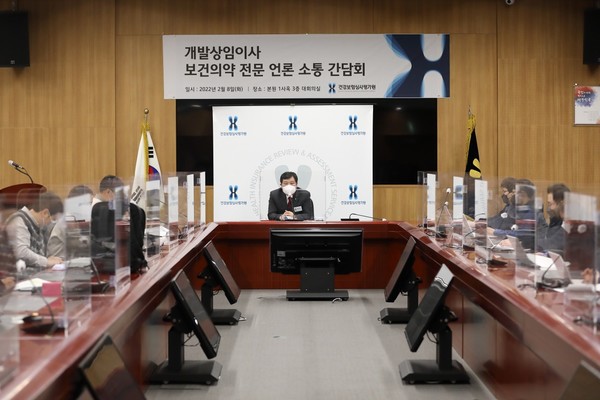Pharmaceutical industry officials are paying attention to how the Korean government will manage health insurance benefits for medicines that cure diseases with a single injection but cost millions of dollars.
Recently, the government said it would review introducing a new reimbursement system exclusively for high-priced drugs.

Novartis’ Kymriah (ingredient: tisagenlecleucel), CAR-T cell therapy for leukemia and lymphoma, costs about 500 million won ($417,803) per treatment. Only a one-time treatment of Kymriah can show therapeutic effect, and it won insurance benefits.
Zolgensma, a gene therapy to treat spinal muscular atrophy (SMA) also by Novartis, costs 2.5 billion won per treatment.
The Health Insurance Review and Assessment Service (HIRA)’s drug benefit evaluation committee will review the adequacy of the Zolgensma reimbursement given last year.
Jang Yong-myung, director of development at HIRA, said the government prepared a reimbursement system tailored for highly-priced drugs because Novartis applied for insurance benefits for Zolgensma recently.
“Drugs such as Kymriah and Zolgensma are treatments with a single dose efficacy, but due to high prices and uncertainty about long-term effects, existing evaluation methods have limitations in verifying cost-effectiveness,” Jang told reporters on Tuesday. “So, we need risk-sharing methods including performance assessment and expenditure cap.”
For Kymriah, which is reimbursable, the government will collect the status of Kymriah-treated patients for a certain time, and Novartis will have to refund a certain amount of money for patients who do not respond to Kymriah.
“We decided to grant insurance benefits on the condition that the drugmaker signs the expenditure cap risk-sharing agreement and re-evaluate the RSA four years after the reimbursement registration,” Jang said.
For Zolgensma, the HIRA is also reviewing a therapeutic outcome-based reimbursement system just like Kymriah, to overcome uncertainty about long-term effects and limitations in assessing cost-effectiveness.
“We are planning to hold a meeting of the drug benefit evaluation committee to evaluate Zolgensma reimbursement,” he said.

